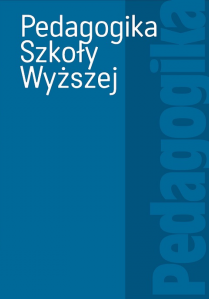Studenckie adaptacje sztuki, czyli aksjologiczne i emancypacyjne wymiary animacji kulturalnej w Akademickim Centrum Kultury Uniwersytetu Szczecińskiego
Students' art adaptations, that is axiological and emacipating aspects of cultural animation at Cultural Academic Centre of Szczecin University
Author(s): Jerzy Norbert GrzegorekContributor(s): Jerzy Norbert Grzegorek (Translator)
Subject(s): Social Sciences, Fine Arts / Performing Arts, Higher Education , Sociology of Culture, Sociology of the arts, business, education, Sociology of Art, Sociology of Education
Published by: Wydawnictwo Naukowe Uniwersytetu Szczecińskiego
Keywords: academic culture; animation culture, art; emancipation;
Summary/Abstract: While analysing cultural animation in categories of reflection and pedagogical practice, we discover the heterogeneity of its nature. It contains many interdisciplinary contexts of theoretical, objective-contextual, functional and subjective-social aspects. It allows to define it from different theoretical perspectives,placing it in many areas of knowledge and science including education, art and other scientific studies associated with them. This multi paradigm determines the timeliness and the meaning of cultural animation at the background of dynamically changing social reality including that of education and its crisis of culture and upbringing and at the same time the need of its overcoming. Cultural animation can become a kind of carrier of chances and possibilities, especially in the context of academic culture. The starting point for the considerations presented in this text is 3 criteria of examining culture which support its animation not only disseminating in an academic structure. The first criterion is based on the statement that culture determines the development of the societies, standard of living in the collective and subjective aspects. The second one is based on the assumption that education is the reflection of culture. The third criterion is based on the emancipating function of culture both in reference to subjective emancipating and to collective transgression.
Journal: Pedagogika Szkoły Wyższej
- Issue Year: 2014
- Issue No: 16
- Page Range: 166-186
- Page Count: 21
- Language: Polish

